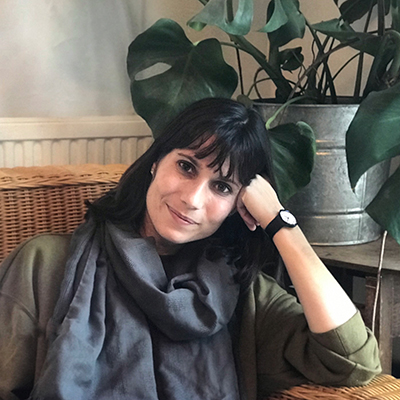Sarah Bufkin attended the Dickens Universe as a high school student and winner of the Dickens Project's national essay contest in 2007. She is now pursuing a doctorate in political theory All Souls College in Oxford. This Q&A is part of our new series highlighting members of the Dickens Project and Dickens Universe community.
 What prompted you to submit your essay to the contest?
What prompted you to submit your essay to the contest?
My literature teacher first brought the contest to my attention because he knew how much I enjoyed Dickens, and he pushed me to write something to submit.
What was the title of your essay? What was its topic?
My essay was entitled “Charles Dickens: In His Time and Ours.” It’s quite embarrassing to look back at it now. I wrote on A Tale of Two Cities, attempting to illustrate the ways that Dickens’s critique of social stratification and moral hierarchies could be applied to contemporary conditions that make some lives matter more than others. But the thesis statement of the essay itself — that Dickens was some sort of “genius figure” — was quite problematic. Fortunately, the selection committee pushed me to think more critically about the concept of a ‘genius’ and its exclusionary history of deifying supposedly world-historic white men. It was the first time that I had been challenged to think critically about the interpretative frameworks that I used to perceive and evaluate the world. For that, I am very grateful.
Can you describe your experience with the Dickens Universe the year you attended?
It’s been over a decade now, so my memories are more snapshots and fragments than they are a coherent narrative. But the book that year was The Pickwick Papers, and I remember attending all of these panels and talks in which literary critics dug into the text as
Where did life take you after your experience with the Dickens Universe?
I’ve largely been on an academic path since the Dickens Universe conference, stringing together a series of schools and degrees. I completed my undergraduate at the University of North Carolina at Chapel Hill, where I fell in love with literary and social theory. After a brief stint working for the North Carolina NAACP in Durham, N.C., I returned to the academy for a master’s degree in political philosophy at the Queen’s University in Belfast. And then it was on to Oxford to start a doctorate.
What are you currently doing?
I’m currently a fellow of All Souls College in Oxford, where I am finishing up my doctorate in political theory.
Do you believe that your experience with the Dickens Universe affected your plans in any way?
The Dickens Universe was the first taste I had of the sort of intellectual play that could be found in academic life. Now that I have spent more time in these institutionalized spaces, I know that you have to carefully curate and seek out the sort of community that you want to find in university settings, just as you would in any profession. But when you do find that spark — the frisson of discussing things that matter in new and transverse ways — it is really something. It would take me years after the Dickens conference to realize that I might want to become an academic, but the experiences that I had in Santa Cruz certainly showed me that there was something within me that craved these sort of intellectual sojourns.
What are some hobbies and activities that you enjoy in your spare time?
I love being outdoors — hiking, climbing, camping. And even though I left the formal discipline of literature behind, I still love to read.
What are your goals and plans for the future?
To write and read regularly. To do something that enables me to care for others and the communities I’m a part of in the ways that I have been cared for. To finally become employed.
Thank you very much for taking the time to reconnect with us!
